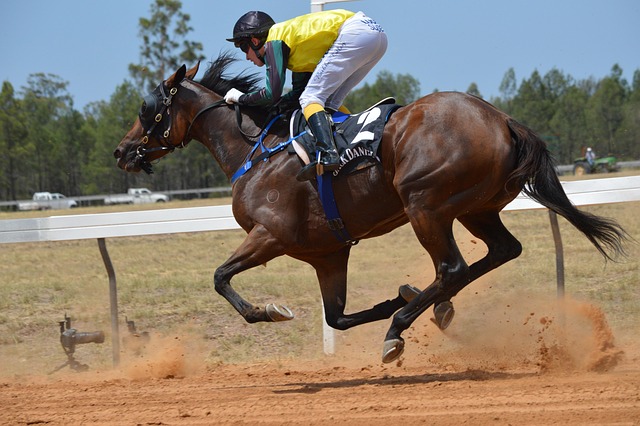Ever felt like the weight of the world was on your shoulders before a big game? Your heart races, your palms sweat, and your mind spins. You’re not alone. Sports pressure and anxiety affect many athletes. They can hurt your performance and how you feel. This article will give you real ways to handle pressure, so you can play your best and feel good doing it.
Understanding the Roots of Sports Pressure and Anxiety
Sports pressure and anxiety come from the mind and body. They can make you tense and worried when competing. Knowing where these feelings come from can help you take control.
Internal Factors: Perfectionism, Fear of Failure, and High Expectations
Your own thoughts play a big role in how you feel. If you are a perfectionist, you might set goals too high to reach. This can cause big stress and worry about failing. For example, you might think you need to score every single point to be good enough. It is important to know if your thoughts are making things worse.
- Actionable tip: Challenge negative self-talk. When you hear yourself saying, “I’m going to mess up,” stop! Change it to something like, “I’ve practiced hard, and I’m ready.”
External Factors: Coaches, Parents, and Competition
Pressure can also come from outside. Coaches, parents, and even the competition itself can make anxiety worse. A coach who yells constantly can make you feel like you’re never good enough. Parents who push too hard can take the fun out of the game. This is really common with young athletes.
- Actionable tip: Talk to your coaches and parents. Explain how their words and actions affect you. Good communication can ease the stress.
Proven Strategies for Managing Pressure in the Moment
Got a big game today? Here are a couple things you can do in the moment to stay chill and get the job done.
Breathing Techniques and Mindfulness
Breathing helps you chill out when pressure hits. Mindfulness keeps you in the present, so you’re not worrying about the future or the past.
- Actionable tip: Try this simple breathing exercise. Breathe in slowly through your nose for four seconds. Hold it for one second. Breathe out slowly through your mouth for six seconds. Do this a few times to calm your nerves.
Positive Self-Talk and Reframing
Change those thoughts! Positive self-talk can boost your confidence. Reframing helps you see things in a better light.
- Actionable tip: Make a list of positive things to say to yourself. Examples: “I am strong,” “I am prepared,” and “I can handle this.”
Visualization and Mental Imagery
See yourself succeeding before it happens. This builds confidence and lowers anxiety.
- Actionable tip: Close your eyes and imagine yourself playing perfectly. Feel the ball in your hands, hear the crowd cheering, and see yourself making the winning shot.
Building Long-Term Resilience to Sports Anxiety
Build some long term skills so you can conquer anxiety in the long run, these are proven ways to win.
Goal Setting: Process-Oriented vs. Outcome-Oriented
Think about how you play, not just if you win. Focus on improving your skills. This takes the pressure off winning every time.
- Actionable tip: Instead of saying, “I want to win the championship,” try, “I want to improve my free throw percentage by 10%.”
Building a Strong Support System
Surround yourself with people who believe in you. Talk to teammates, coaches, or a sports psychologist.
- Actionable tip: Talk to your teammates, coaches, and family. Share how you are feeling.
Cognitive Behavioral Techniques (CBT)
CBT is a way to change negative thoughts. It can help you deal with anxiety over time.
- Expert reference: Studies show that CBT is very effective for athletes dealing with anxiety. It helps them change the way they think and act.
The Role of Coaches and Parents
Coaches and parents have a big influence. Their support can make all the difference.
Creating a Positive and Supportive Environment
Encourage effort, not just wins. Give positive feedback. This helps athletes feel good about themselves.
- Actionable tip: Instead of saying, “Why didn’t you score more points?” try, “I’m proud of how hard you worked out there.”
Recognizing the Signs of Anxiety and Offering Help
Know the signs of anxiety. Changes in behavior or physical symptoms can be red flags.
- Actionable tip: If you notice an athlete is withdrawn, irritable, or complaining of stomach aches, talk to them.
When to Seek Professional Help
Know when it’s time to get extra help.
Identifying Red Flags
Watch out for things like panic attacks, constant worry, or trouble sleeping. These could mean it’s time to see a professional.
Types of Professionals Who Can Help (Sports Psychologists, Therapists)
Sports psychologists and therapists can help you deal with sports anxiety. They can teach you ways to handle stress and improve your mental game.
- Actionable tip: Look for sports psychologists or therapists in your area. Ask your coach or school counselor for recommendations.
Conclusion
Handling sports pressure and anxiety is key to success. Breathing exercises, positive self-talk, and good support systems can make a big difference. Seek help when you need it. It’s a sign of strength. Put your mental well-being first, and you’ll reach your full potential.



